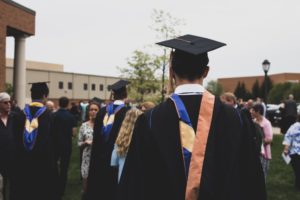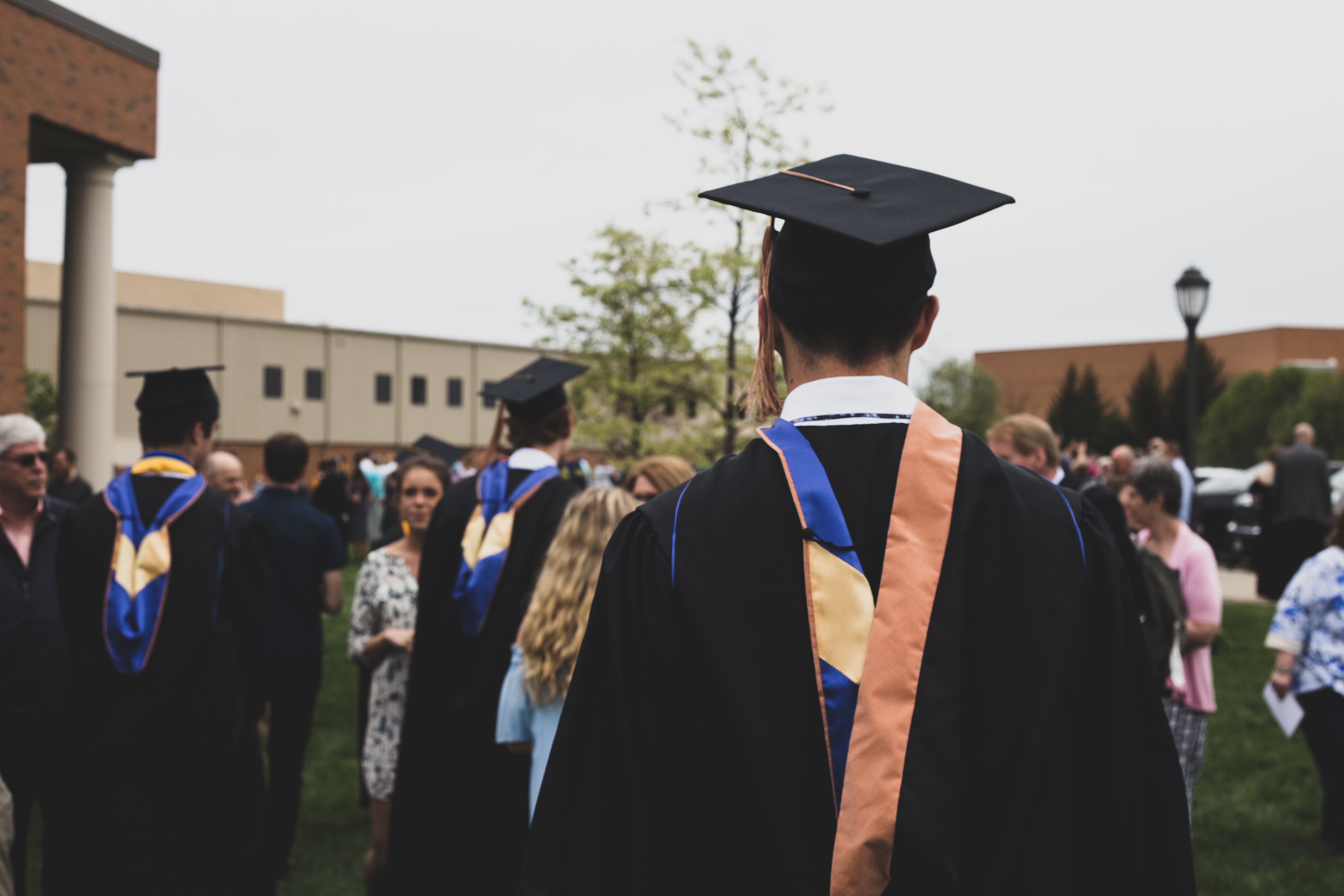
After receiving over 1,400 applications in the fall of 2017, the Boettcher Foundation chose less than 50 scholarship winners. I am one of them, which means I get four years of almost-free attendance to basically any Colorado school of my choice.
In lieu of a traditional press release, I’m going to tell you why.
I think it’s explained best in the context of one of the questions I was asked during my interview: As I sat at the head of a long, polished conference room table, one of the panel members asked me why I had such a “strong sense of self ” and whether I thought it was due to nature or nurture.
I told her that I don’t look through the lens of nature vs nurture so much as I look through the lens of privilege vs oppression. As a white, middle-class high school student, I have been socialized to live and act in certain ways. As a queer, disabled person, I have learned how to challenge them.
More than intelligence, maturity, or hard work, these identities are what drive me to take action. I can imagine who I would be if I didn’t work hard. But I can’t imagine who I’d be if I wasn’t disabled and queer.
This isn’t to say I don’t believe that I am intelligent, mature, and hardworking. Rather, it’s to say that I know that these words are used overwhelmingly in the education system to describe middle class, able-bodied white people.
People like me.
My privilege has allowed me access to knowledge and communities I could not be here without. So, let’s talk about some of the ways that they showed up in my life. Together, let’s hold space for discussion about the education system in all its beauty and all its horror. Here are five reasons I got a full ride.
- I’m “gifted and talented”
Starting in elementary school, I was quickly marked as Gifted and Talented (GT). This may have been a result of my “unusual questions” or “seeking of diverse relationships” (as detailed in the “Twelve Areas of Giftedness” rubric) — but God knows it helped that I was white. In 2016, Rocky Mountain PBS reported that “well over one-quarter of all white students in Denver Public Schools are classified as gifted and talented, more than…three times the percentage of black students who carry that label.”
As a GT kid, I was encouraged to be a part of a Destination Imagination Team and write for the school newspaper. Teachers took extra time to make sure I felt engaged and supported, even pulling me aside for special assignments. I was taught that teachers were there to help me and, by extension, how to ask them for help and advocate for myself. That became a huge advantage as my health worsened in middle school. Even though I am disabled, people that think that:
- I’m “high functioning”
Even though I deal with chronic pain and mental illness, you couldn’t tell just from looking at me. This is a huge privilege. To steal a phrase from one of my favorite bloggers, Sam Dylan Finch, I can successfully “perform sanity.” Here’s an excerpt from his 2017 article about being perceived as “relatable, compliant, and friendly” during a recent hospitalization:
“While I do experience oppression as a mentally ill person, I am treated with more compassion, have access to more resources, and have the trust and faith of my clinicians because I can ‘pass’ as reasonably sane in most situations.”
Through access to medication and therapy, I’ve learned how to “code switch” and master small talk. It’s a skill I have used to connect with teachers, mentors, and other awesome people. Speaking of:
- I know some powerful people
The teachers I connected with awarded me certificates, good grades, and invitations to summer camps like the Dawson Summer Initiative, where I met a college advisor that I still work with today. A notification from her email list encouraged me to apply for a program called Youth Global Leadership, where I got to engage in social justice and assume roles of leadership that looked good on applications.
By attending workshops and events through that program, I’ve exchanged info with nonprofit directors, PhD candidates, college professors, and slam poets who continue to inspire and support me. I had their letters of recommendation and advice to lean on during the college decision-making process. Which was made possible because
- I have a car, gas money, and time to drive it
When high school approached, I had access to a car and didn’t have to work or care for a sibling, which allowed me to travel and resume-build at my convenience. In the past two years, I have spent hours browsing Facebook events. Attending school clubs, marches, fundraisers, retreats, and conferences allowed me to build community and get the “real world” experience that college boards love. Lastly,
- I’m white and Colorado-born
Meaning: I saw people who looked like me in textbooks and was assured that I could be “just like them.” Meaning: the holidays I celebrate, my family structure, and many of my values were normalized and accepted. Meaning: my college-educated parents were able to help me with homework and, for the most part, told me exactly what I needed to do to get into university.
Meaning: I was never pulled from a college tour because I looked like I “didn’t belong.” Meaning: I was less likely to be subject to harsh punishment. Meaning: I was less likely to get funneled into a poorly-funded school. Meaning: I grew up speaking English as a first language. Meaning: I had a social security number, proof of residency, and a birth certificate for scholarship applications.
Now, I’m a Boettcher Scholar. But am I saying only people with tons of privilege can get scholarships or saying that I don’t experience oppression? No. Is this a critique of Boettcher’s selection criteria? No. Am I trying to diminish my accomplishments? No.
This is what I am saying: my life should not be an anomaly. Support from teachers, help with homework, and community engagement should be the norm. Privilege is something everyone should experience.
Everyone should be able to go to college if they want to. Everyone should be encouraged to try to new things and advocate for themselves. Everyone should get support from their teachers and opportunities to connect with adults they admire and respect. Everyone deserves Wifi, forgiveness, and emotional space.
So this is my challenge to every student, parent, and administrator: Look at the ways you experience privilege and oppression in your school.
Question whether you subconsciously think POC don’t belong on student tours. Question how you’re punishing your students.Question the ties between funding and and standardized tests and whiteness. Question whether you’re supporting ESL students. Question the ways that college institutions are set up to push out immigrants.
And the next time you attribute something to a person’s intelligence, maturity, or hard work, think about all the other factors that might play out in their life. Though my hope is that, one day, nature and nature will determine who we are far, far more than privilege does.
Raye Watson is a Philanthropiece Program Intern.

